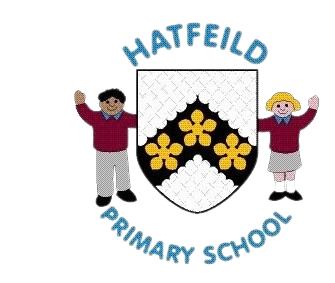English as an Additional Language
Intent
At Hatfeild we are committed to providing a broad, balanced and inclusive curriculum. This includes providing equal opportunities for children with English as an Additional Language and children of all Ethnicities. At Hatfeild we have over 40 different languages spoken.
We aim to:
-
Welcome the cultural, linguistic and educational experiences pupils with EAL contribute to the school
-
Enable pupils with EAL to become confident and to acquire the language skills needed to reach their full potential
-
To allow children to learn English rapidly through an inclusive approach
Implementation
How we do this:
-
Provide a welcoming atmosphere for newly arrived pupils and families with EAL
-
Gather accurate information regarding children’s backgrounds, cultures and abilities from families
-
Equip teachers and support staff with the necessary skills, resources and knowledge to support pupils with EAL
-
Use a wide variety of resources to raise attainment
-
Ensure our school and classrooms reflect the languages and culture of our children
-
Language-rich environments
-
Acknowledge the skills of children in their home language and give them opportunities for this
-
Pre-teach key vocabulary to ensure children have strong language acquisition
-
Ensuring all written work includes the technical requirements of language as well as the meaning.
-
Systematically monitor and support children’s progress and adapt accordingly
-
Targeted interventions that carefully consider the needs of the children.
-
Teachers carry out termly assessments of the skills and needs of pupils with EAL. From these, teachers establish targets and next steps to ensure the steady progress of the children. These are regularly evaluated and commented on. This highlights any stalled or slowed progress, so teachers can plan and adapt accordingly.
Inclusion
The school utilises a strategy of inclusion and positive and effective use of language. The strategy includes the following principles:
Language
-
There is an understanding throughout the school, for both staff and pupils, that a limited knowledge of English does not reflect a lack of ability or knowledge.
-
The ability to speak their own first language is essential for building their confidence and self-esteem.
-
The language development of pupils is the responsibility of the entire school community. Staff are able to use the Communication In Print programme to create resources and visuals.
-
Diversity will be valued and classrooms will be socially inclusive.
-
Teachers will be knowledgeable about a pupil’s abilities in English and use their knowledge to inform lesson planning.
Ethnicity
-
Diversity will be valued and classrooms will be socially inclusive.
-
A range of texts are used in our daily teaching and available in both our classrooms and the library.
-
Diversity within British History to be included within our curriculum
Top priorities for 2023-2024
-
To ensure that teachers and teaching assistants across the school feel they have the tools and skills needed to support EAL learners, with differentiated resources and targeted interventions.
-
To ensure EAL learners are making good progress in reading and writing, monitored through the use of EAL assessments. Any stalled progress identified by class teachers, and provisions implemented.
-
To raise the attainment of EAL pupils in Reading by the end of KS1.
-
To develop teachers' knowledge of the Communication In Print programme, whereby staff are able to create visuals and resources such as colourful semantics and embed these through their lessons.
